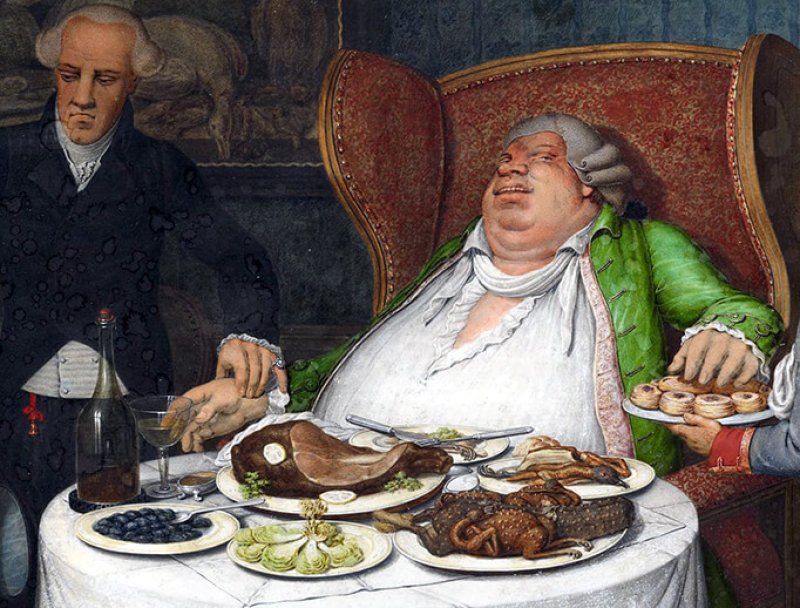During our hunter-gatherer past, which constitutes 99 per cent of our history as a species, … omnivorous tastes served us well. We routinely dined to capacity …. Food quality and quantity were unpredictable, as contingent upon human forces such as trade routes as upon the vagaries of weather and natural cycles. Very early on, we adapted to periodic scarcity, leaping at any chance to pile on calories and storable nutrients
…
Gluttony – shameful or proud – persists as exuberant overeating at social gatherings, eating contests, and shopping sprees at price-club MegaMarts. But by any other name it is still a reminder of the polarised privilege inherent in agrarianism and our more precarious past.
…
The capacity for excess might explain the frequency with which humans have brought desirable wild-animal populations to, and sometimes over, the brink of extinction.
…
In all cases, hunters faced with unimaginable bounty never had – or quickly lost – any notion of sustainable practice.
…
This is how we are: gluttonous, ravenous, lazy and short-sighted. … Famine sticks in our cellular memory; the fat and protein in meat provide some of the best actual insurances against it, so biology cries Eat it! Culture adds that meat must not only be easy to find, but easy to acquire. Thus the land of plenty is also the land of the lazy. And the lazy have the additional luxury of denying the uneasy truth behind their easy meals.
Read full, original article: Homo gluttonous































